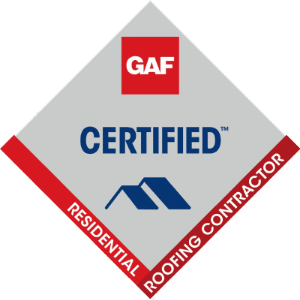Understanding Roof Inspections and Their Critical Importance
Regular roof inspections serve as the foundation of proactive home maintenance, and at Black Hills Roofing, we’ve been conducting comprehensive evaluations since 1957. A thorough inspection can identify potential issues before they escalate into costly repairs, saving homeowners thousands of dollars in emergency repairs and interior damage. Our CertainTeed/GAF Certified and Malarky certified inspectors examine every component of your roofing system, from shingles and flashing to gutters and ventilation systems.
The frequency of roof inspections depends on several factors including the age of your roof, recent weather events, and surrounding environmental conditions. We recommend scheduling professional inspections at least twice annually, typically in spring and fall, to assess winter damage and prepare for harsh weather seasons. Additionally, after severe storms pass through Rapid City, Black Hawk, Box Elder, Rapid Valley, Hill City, Summerset, Custer, Hot Springs, Deadwood & Spearfish, SD, immediate inspections become crucial for identifying wind damage, hail impacts, or debris-related issues that might not be visible from ground level.
Our Comprehensive Inspection Process
When our certified inspectors arrive at your property, we begin with a detailed exterior examination, checking for obvious signs of damage or wear from multiple vantage points. This initial assessment includes photographing areas of concern and documenting the overall condition of your roofing materials. We then conduct a systematic evaluation of the entire roof surface, paying special attention to areas prone to leaks such as valleys, chimneys, skylights, and pipe boots.
Our interior inspection process involves examining your attic space for signs of water intrusion, inadequate ventilation, or structural issues. We check for daylight penetration, moisture stains, mold growth, and proper insulation levels. Temperature readings help us identify hot spots that might indicate ventilation problems, while moisture meters detect hidden water damage that isn’t visible to the naked eye. This comprehensive approach ensures no potential issue goes unnoticed, protecting your investment and your family’s safety.
Key Components We Evaluate During Every Inspection
- Shingle Condition: We assess granule loss, curling, cracking, and missing shingles that compromise your roof’s protective barrier
- Flashing Integrity: Metal flashing around chimneys, vents, and valleys receives careful examination for rust, separation, or improper installation
- Gutter System: Proper water drainage prevents foundation damage and ice dam formation during winter months
- Ventilation Components: Ridge vents, soffit vents, and exhaust fans must function correctly to prevent moisture buildup and extend roof life
- Structural Elements: Sagging areas, damaged decking, or compromised trusses require immediate attention to prevent catastrophic failure
Advanced Technology and Inspection Tools
We utilize cutting-edge technology to provide the most accurate assessments possible for homeowners throughout Black Hills Area. Infrared thermal imaging cameras detect temperature variations that indicate moisture intrusion or insulation gaps invisible during visual inspections. Drone technology allows us to safely inspect steep or dangerous roof sections while capturing high-resolution images for detailed analysis. These technological advantages set us apart from storm chasers who often perform cursory inspections designed to sell unnecessary services.
Moisture meters with penetrating probes measure water content in roofing materials and underlying structures, identifying problems before visible damage occurs. Our digital documentation system creates comprehensive reports with annotated photographs, allowing homeowners to understand exactly what we’ve found and why specific repairs might be necessary. This transparent approach aligns with our core values of integrity and customer commitment, ensuring you receive honest assessments without hidden agendas.
Post-Inspection Services and Maintenance Planning
Following each inspection, we provide detailed reports outlining our findings, recommendations, and priority rankings for any necessary repairs. Our maintenance planning services help homeowners budget for future repairs while addressing immediate concerns that could lead to more extensive damage. We support many local charities and events, demonstrating our commitment to community well-being extends beyond quality roofing services.
As a professional, trustworthy, and transparent local company, we understand the importance of clear communication throughout the inspection process. Our approachable team explains findings in understandable terms, avoiding technical jargon that might confuse homeowners. We provide photographic evidence of any issues discovered, cost estimates for recommended repairs, and timeline projections for addressing various concerns. This comprehensive approach ensures you’re never surprised by unexpected roofing expenses and can make informed decisions about your home’s protection.
At Black Hills Roofing, our mission drives every inspection we perform. We protect what matters most by combining decades of experience with innovative inspection techniques, ensuring your roof continues safeguarding your family and possessions for years to come.
Frequently Asked Questions
Q1: How often should I schedule a roof inspection?
A: It’s best to have your roof inspected at least once or twice a year, ideally in the spring and fall. Regular inspections help identify minor issues before they turn into costly repairs and extend the lifespan of your roof. Additionally, you should schedule an inspection after severe weather events like storms or heavy winds.
Q2: What does a typical roof inspection include?
A: A professional roof inspection covers a thorough assessment of your roofing materials, flashing, gutters, vents, and overall structural condition. The inspector looks for signs of damage, wear, leaks, and potential problem areas, then provides a detailed report with recommendations for repairs or maintenance.
Q3: How can a roof inspection benefit me?
A: Routine inspections can help you avoid unexpected damage, save money on repairs, and maintain your home’s value. Catching issues early prevents leaks and structural damage, ensures your roof performs efficiently, and can help with insurance claims if damage is detected after storms.










